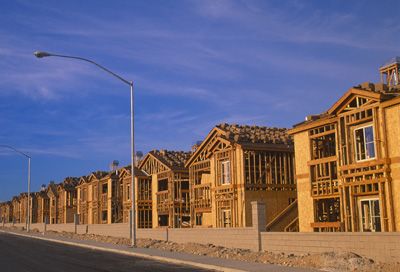As you get closer to retirement age, it might feel like it's too late to buy a home. While this might be true in some cases, there are times when it still makes sense to buy.
For older homebuyers, there are some considerations that younger house hunters don't necessarily have to worry about. Of course, you still need to look at the neighborhood and school district, compare the prices for similarly sized houses in the area, and make sure you're choosing a home that's within your budget, but older homebuyers also have to face the hard fact that as they age, it's going to be more difficult to take care of a house. The closer you are to retirement age, the more important it is to look at your financial situation, your health and how this house could impact your family members.
Advertisement
Some say it's actually better to buy your first home when you're older because chances are you have more money in savings and investments. If you're planning a retirement that involves extensive travel, burdening yourself with a mortgage and home maintenance is probably not the best idea, but if your retirement plans include settling down in one place, it might not be such a bad idea. Just make sure you sit down and crunch the numbers. How will that down payment affect your retirement nest egg?
You don't want to saddle yourself with a monthly payment that blows through your retirement savings, either. Take a hard look at your retirement budget, and make sure you'll be able to afford maintenance as well as mortgage payments, insurance, taxes and any homeowner's association fees. Selling a home takes time, and that can be a liability if you find yourself in a situation where you need to move to an assisted-living facility. Can you afford in-home care, or can a family member take care of the house for you if this situation arises?
A home is a long-term investment, and you need to consider what's going to happen to that investment when you can't maintain it yourself anymore. Make sure you have a plan to manage maintenance when you can no longer do it yourself. That might mean paying for a maintenance service or making sure you have the cash tucked away to pay for individual issues as they arise. You might also be able to rely on some handy family members to pitch in and help.
Read on for more things to consider when buying a home later in life.
Advertisement


